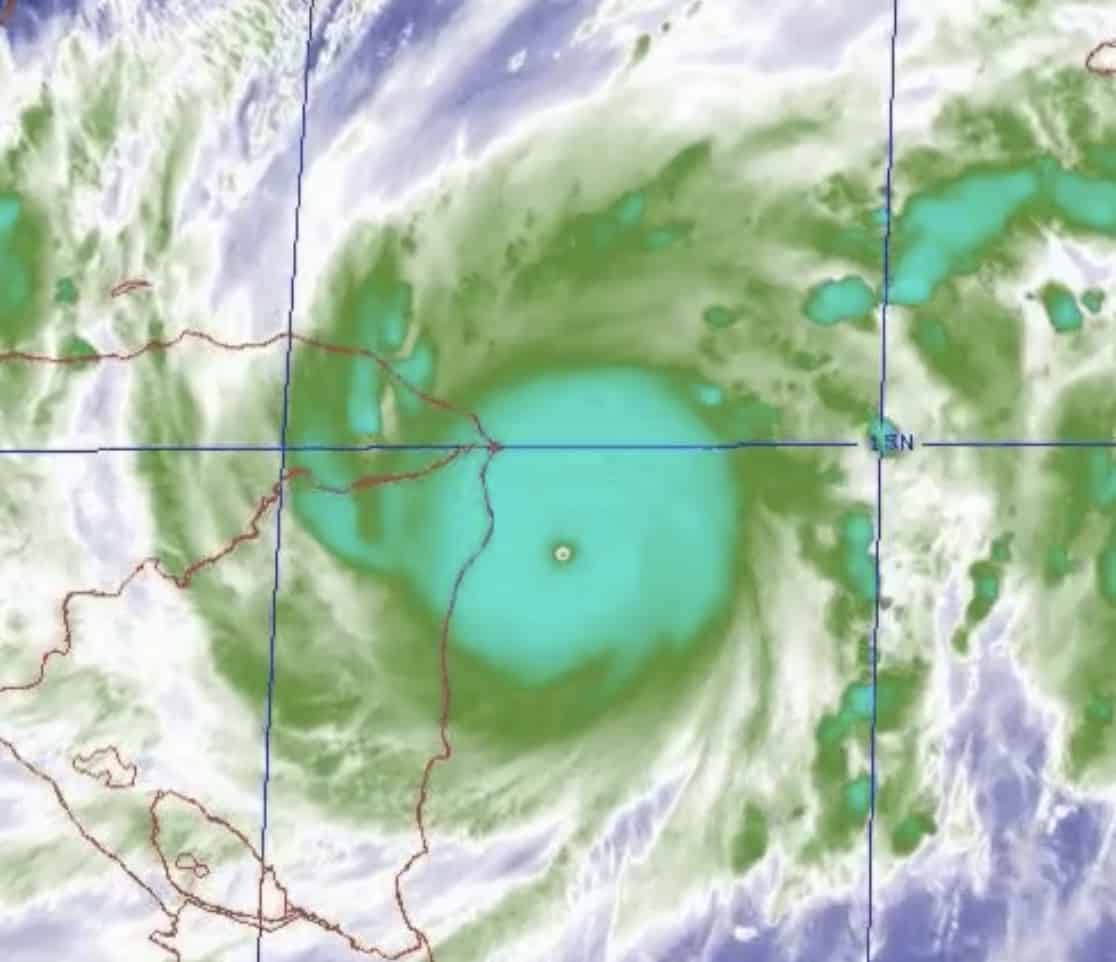Hurricane Eta was hours from making landfall in Central America on Tuesday after gaining strength in the Caribbean Sea, threatening Nicaragua and Honduras with catastrophic winds and floods.
The “extremely dangerous” weather system was packing winds of 150 miles (240 kilometers) an hour as it barrelled towards the Nicaraguan coast, the US National Hurricane Center said.
“Life threatening storm surge, catastrophic winds, flash flooding and landslides are expected across portions of Central America,” the NHC warned.
Eta was 25 miles from the city of Puerto Cabezas and moving towards the Nicaraguan coast at five miles an hour by 3:00 am (0900 GMT) local time, according to the NHC forecast.
Tropical storm-force winds at Eta’s leading edge were already slamming the outlying Miskito Cays late on Monday, with the winds set to increase as the hurricane rumbled closer.
“It’s raining hard, with lots of wind. The sea is rough. We are afraid,” Miskito teacher Kevin Lackwood, 22, told AFP.
Only the community’s men remained to protect the houses, he said. The women and children have already been evacuated from the village of 800 people.
“If the situation becomes more dangerous,” Lackwood said, the men would leave too.
Other regions across the Caribbean and Central America were also facing a mauling from Eta, as the NHC said that “flash flooding and river flooding would be possible across Jamaica, southeast Mexico, El Salvador, southern Haiti, and the Cayman Islands.”
“We have managed to evacuate more than 3,000 families with the active participation of our army from Caribbean communities,” such as Prinzapolka and the Miskito Cays, Nicaragua’s Vice President and first lady Rosario Murillo said.
Those families have been moved to shelters in high, safe areas, said Murillo.
Both Nicaragua, with more than six million people, and neighboring Honduras, with more than nine million, issued red alerts over Eta’s imminent arrival.
Some 100,000 people live along the Nicaraguan coast, mostly in indigenous communities likely to be hit hard by the hurricane.
‘Totally vulnerable’ communities
Dangerous storm surges are expected to raise water levels by up to 18 feet (five meters) above normal tide in areas along the northeastern coast of Nicaragua, and up to five feet along the coast of Honduras, where a tropical storm warning was in force.
“There is some concern from the population, there are many flood areas, people are packing their goods and looking for ways to get out to shelters,” said Limbort Bucardo, a resident of Puerto Cabezas, which is known locally as Bilwi.
Residents stocked up with food, lamps, radios and plastic bags to protect their belongings, Bucardo told AFP.
“The houses are totally vulnerable, they are old wooden houses lined with plastic,” unable to withstand strong winds, said emergency services volunteer Kevin Gonzalez.
Gonzalez said 1,600 indigenous people were evacuated from the outlying Miskitos Cays archipelago, in the path of the hurricane, on Sunday.
The government sent 88 tons of food to the region on Sunday, as well as emergency crews to help repair communications and infrastructure once the hurricane had passed.
The NHC warned Monday that “much of Nicaragua and Honduras would get 15 to 25 inches (380 to 635 mm)” of rain.
And in mountainous Central America, flooded rivers can sweep over local residents in rural areas, in addition to triggering landslides.
Eta dumped heavy rains in Costa Rica on Sunday, where authorities evacuated people from the country’s southern Pacific coast.






